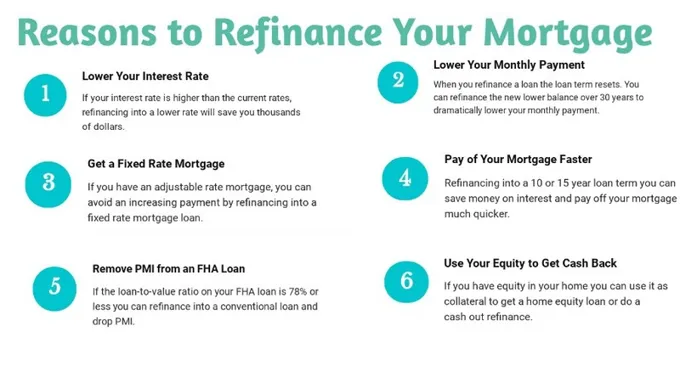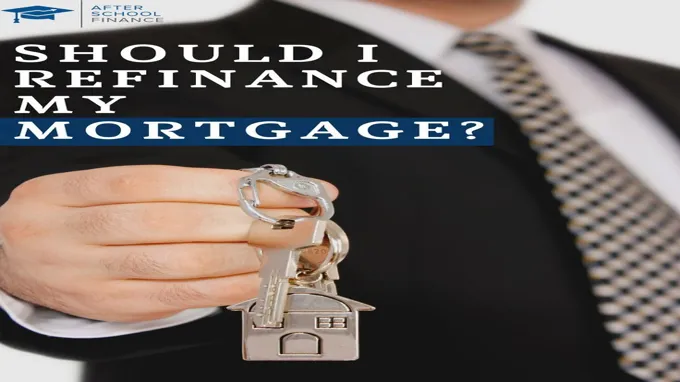Refinancing a car lease can be both enticing and confusing. It’s a great way to potentially lower your monthly payment, change the length of your lease, or get a more favorable interest rate. But can you refinance a lease? The short answer is yes, you can refinance a car lease just like you can refinance a car loan.
However, the process of refinancing a lease is a little different than refinancing a loan, and it’s essential to understand the benefits and drawbacks before jumping in. In this blog, we’ll explore everything you need to know about refinancing a lease, from how it works to the potential benefits and drawbacks, helping you determine whether it’s the right move for your situation.
Table of Contents
Understanding Lease Refinancing
It is possible to refinance a lease, but the process can be a bit more complicated than refinancing a traditional loan. When you refinance a lease, you are essentially renegotiating the terms of your existing lease agreement with the leasing company. This can be a good option if you want to reduce your monthly payments or change the length of your lease.
However, the terms and conditions of your original lease will determine whether or not refinancing is possible and how much you can save. It may be helpful to consult with a financial advisor or leasing agent to determine if refinancing is the right choice for you. Keep in mind that refinancing a lease can affect your credit score and may come with additional fees or charges.
Overall, refinancing a lease can be a valuable financial tool if used wisely, but it is important to do your research and fully understand the terms of your lease agreement before proceeding.
Explaining Lease Refinancing and Its Pros and Cons
Lease refinancing is a process where a lessee negotiates better terms on their existing lease with the landlord. This could be to reduce monthly payments, extend the lease period, or even change the conditions of the lease to better suit their business needs. Refinancing is most commonly associated with real estate leases, but it can also be applied to equipment leases, such as heavy machinery or vehicles.
The primary benefit of refinancing is that it can lead to significant cost savings, allowing businesses to free up cash flow for other purposes. However, there are also some potential downsides to consider before jumping into a refinancing agreement. These could include additional transaction costs, longer lease terms, or changes to the original lease agreement that may not be favorable for the lessee.
Ultimately, whether or not to pursue lease refinancing depends on the specific circumstances of the business and its goals.

Benefits of Refinancing a Lease
Lease refinancing can provide a multitude of benefits for those who are looking to save money and make their finances more manageable. Essentially, the process involves renegotiating the terms and conditions of your current lease agreement, typically with the goal of reducing your monthly payments or obtaining a lower interest rate. By doing so, you can potentially save thousands of dollars over the life of your lease.
One of the primary benefits of lease refinancing is the ability to secure better terms. This could mean obtaining a lower interest rate, which translates to lower monthly payments, or negotiating a longer lease term, which can also help reduce your monthly costs. Additionally, refinancing gives you the option to switch to a different type of lease, such as a closed-end lease, which can offer more flexibility and control over your vehicle.
Another advantage of lease refinancing is the potential to access equity. If you have built up equity in your vehicle, which is the difference between the current value of your car and what you owe on it, refinancing can allow you to access that equity and use it towards other expenses or savings goals. You may also be eligible for cash back incentives and other perks depending on the terms of your refinanced lease agreement.
All in all, lease refinancing can be a valuable tool for anyone looking to improve their financial situation and reduce the burden of monthly lease payments. By taking advantage of lower interest rates, flexible lease terms, and a variety of other benefits, you can save money and enjoy greater financial security and peace of mind.
Refinancing Process
Yes, it is possible to refinance a lease but it may not always be the best option for everyone. Refinancing a lease involves trading in the current lease and getting a new lease with different terms, such as a longer or shorter term or a different interest rate. However, there may be fees associated with the process such as early termination fees or lease disposition fees, which can add up quickly.
It’s important to weigh the pros and cons of refinancing a lease and to consider factors such as the amount of time left on the current lease, the condition and value of the vehicle, and the overall financial situation. It’s recommended to speak with a leasing professional to determine if refinancing is the best option for you. By considering all the factors involved, you can make an informed decision that will benefit you in the long run.
Determining if Refinancing is Right for You
When considering refinancing your mortgage, it’s important to understand the process so you can make an informed decision. Refinancing involves obtaining a new mortgage to replace your existing one. The new mortgage will typically have different terms, such as a lower interest rate or a longer repayment period.
The first step is to shop around and compare offers from different lenders. Once you’ve found a lender and a mortgage that meets your needs, you’ll need to apply and provide documentation, such as proof of income and assets. The lender will then perform an appraisal to determine the value of your home and assess your creditworthiness.
If everything checks out, you’ll be approved for the new mortgage and can start enjoying the benefits of a lower monthly payment or reduced interest rate. Don’t forget to factor in closing costs, which can add up to thousands of dollars. Overall, refinancing can be a smart move if it saves you money over the life of the loan.
Factors to Consider Before Refinancing a Lease
Refinancing a lease can be an excellent way to improve your financial situation and save money. However, before you dive into the process, there are a few factors that you need to consider. Firstly, you need to examine your current lease agreement thoroughly and understand the terms and conditions to avoid any surprises.
Secondly, calculate the total lease cost, including interest rates and other charges that may apply to a lease such as disposition or early termination fees. Thirdly, check your credit history and score to determine your refinancing eligibility and if there are any red flags. Finally, research and compare offers from multiple lenders to ensure you get the best refinancing terms and rates.
The refinancing process may seem complex but taking the time to consider these factors will help you make an informed decision and save money in the long run.
Steps to Refinancing a Lease
Refinancing a lease is an excellent way to save money and reduce monthly costs. The process can be relatively straightforward, but it’s essential to follow a few steps to ensure success. First, determine whether refinancing is the right move for you considering factors such as your credit score, the interest rate of the current lease, and the current market.
Next, shop around and compare offers from various lenders to find the best rate. Once you’ve found a lender, provide all necessary documentation, including proof of income and lease agreement. After the lender approves your loan, you’ll sign a new loan agreement and may be required to pay fees or closing costs.
Finally, make sure to carefully review the new terms before signing the agreement and enjoy the benefits of a lower monthly payment. Refinancing a lease may seem overwhelming, but taking the time to follow these steps can result in tremendous savings and peace of mind.
Alternative Options to Refinancing a Lease
If you’re looking to make changes to your current lease without going through the refinancing process, there are several alternative options available. One option is to negotiate with your landlord to make changes to the lease terms. You could request a lower monthly payment, a longer lease term, or even a change in the type of lease agreement.
Another alternative option is to sublease your property to someone else, allowing them to take over payments and responsibilities. This option can be beneficial for tenants who have a change in their financial situation or have to relocate for work. Additionally, some lease agreements may offer a buyout option, which allows you to pay a lump sum to terminate your lease early.
While refinancing a lease may not always be an option, exploring alternative options can still lead to a positive outcome.
Lease Transfer
Lease Transfer Trying to refinance a lease can be a challenging process, but there are alternative options available that may suit your financial needs better. One option is to transfer your lease to another party. This can be done through a lease transfer process, which involves finding someone willing to take over the lease payments and negotiating the terms of the transfer with them.
This can be a great option if you need to get out of your lease early, want to avoid upfront costs associated with refinancing, or simply want to change the car you are driving. It is important to note that a lease transfer will typically involve some transfer fees, and you will still be responsible for any damages or mileage fees at the end of the lease term. However, it can be a viable option if you are struggling with your current lease payments and need some flexibility in your financial situation.
Lease Extension
If you’re a leaseholder, you may be wondering what your options are when it comes to extending your lease. Refinancing is one possibility, but it’s not always the best option. Fortunately, there are alternative ways to extend your lease without refinancing.
For one, you could negotiate directly with your landlord to agree upon new terms for your lease. Additionally, you could look into enfranchisement, which is the process of buying the freehold of your property along with your fellow leaseholders. While there may be legal fees associated with this option, it can be a good investment in the long run.
Ultimately, the key to making the best decision regarding your lease extension is to weigh your options carefully and consider both the short-term and long-term implications of each choice.
Final Thoughts
If you’re wondering about whether you can refinance a lease, the answer is quite simple – it’s not exactly a refinance in the same way as a mortgage or auto loan. With a lease, you aren’t the owner of the vehicle, so you don’t technically have the option to refinance the vehicle itself. However, there is the option to transfer the lease to another person who may want to take over your lease payments while you find a new one.
Additionally, if you want to get out of your lease early, you can look into lease buyout options. Some dealerships will allow you to buy out your lease early, and then you can finance that vehicle on your own. Overall, while you might not be able to refinance your lease in the traditional sense, there are still options available to you.
Conclusion
In conclusion, the answer to the question “can I refinance a lease?” is a resounding “it depends.” Just like with any other financial decision, refinancing a lease requires careful consideration of your individual situation and needs. While it may not always make sense to refinance, it could be a great option for those looking to lower their monthly payments or extend their lease term.
So, before considering whether or not to refinance your lease, be sure to do your research and consult with a trusted financial advisor. After all, a clever refinance could be just the thing you need to drive off into the sunset with a smile on your face (and a little extra cash in your pocket!).
FAQs
What Is Lease Refinancing?
Lease refinancing is the process of changing the terms of an existing lease agreement, usually to lower monthly payments or extend the lease term.
Can I Refinance My Car Lease?
Yes, you can refinance your car lease. This involves finding a new lender who will pay off the existing lease and issue a new one with different terms.
What Are the Benefits of Refinancing a Lease?
The benefits of refinancing a lease may include a lower monthly payment, a longer lease term, and the ability to negotiate better terms that suit your financial situation.
Is Lease Refinancing Available for Both New and Used Cars?
Lease refinancing is generally available for both new and used cars, although the terms and options available may vary depending on the leasing company.
Can I Refinance My Lease to Get a Lower Interest Rate?
Yes, you can refinance your lease to get a lower interest rate, which can result in reduced monthly payments over the life of the lease.
What Are the Requirements for Refinancing a Lease?
The requirements for refinancing a lease may include a good credit score, a stable income, and proof of insurance. Additionally, you may be required to have some equity in the vehicle, be current on payments, and have a certain number of months remaining on the lease.
How Do I Refinance My Lease?
Refinancing a lease typically involves finding a new lender, providing the necessary financial and personal information, and applying for a new lease agreement with different terms. It’s important to compare rates and fees from different lenders and read the fine print carefully before signing a new lease agreement.



